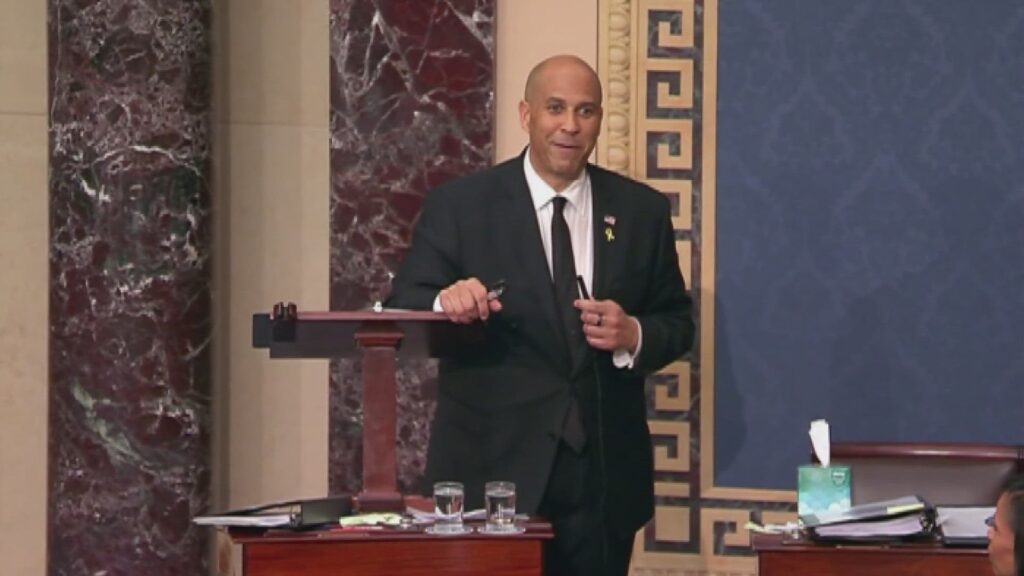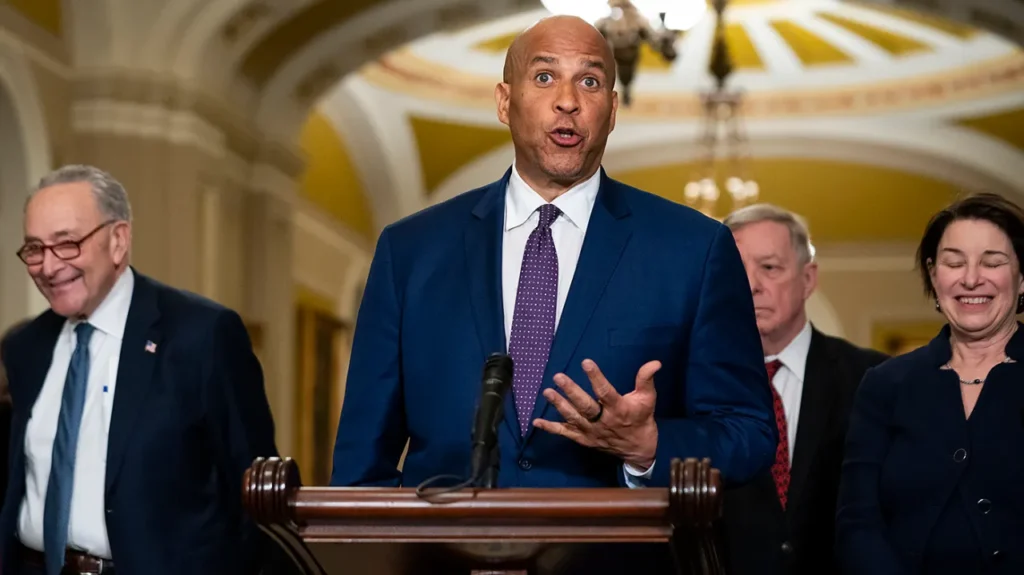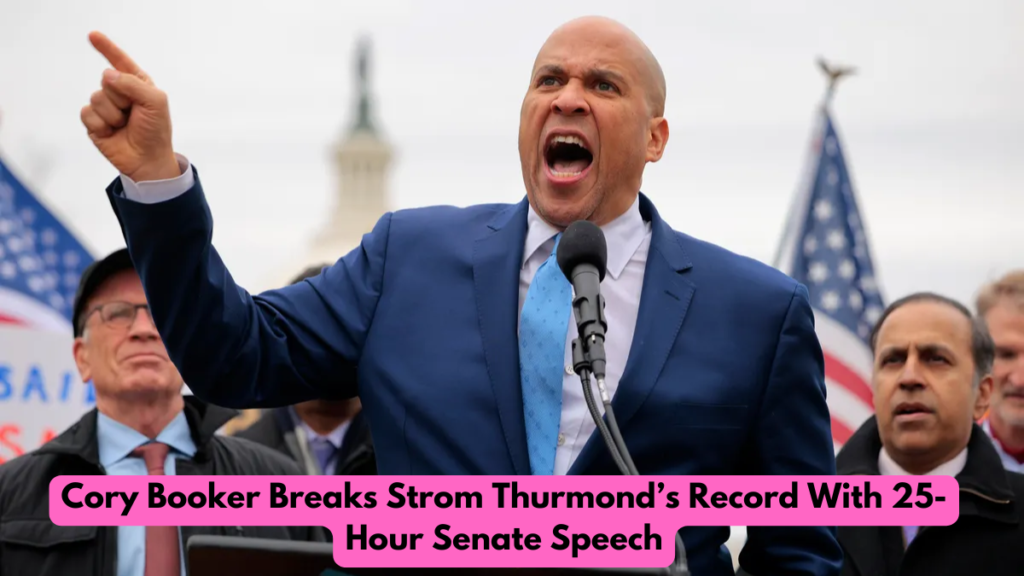Washington, D.C., April 2, 2025 — Senator Cory Booker of New Jersey made history this week by delivering the longest continuous speech ever recorded in the U.S. Senate. Beginning at 6:59 p.m. on March 31 and concluding more than 25 hours later, Booker’s marathon address surpassed a decades-old record set by Senator Strom Thurmond in 1957.
Booker’s speech, which clocked in at 25 hours and 5 minutes, was a direct protest against the foreign and domestic policy direction of President Donald Trump’s administration, particularly focusing on proposed Medicaid cuts, controversial tariffs, and U.S. foreign relations with Russia.

Breaking a 67-Year-Old Record
The previous record of 24 hours and 18 minutes was held by Strom Thurmond, who infamously filibustered the Civil Rights Act of 1957. Thurmond’s speech was widely criticized for its intent to block civil rights progress, whereas Booker’s record-breaking effort was framed as a moral and policy-driven protest.
“I’m not standing here today just to set a record,” Booker said during the speech. “I’m standing here to stand up for Americans who feel unheard and abandoned by their government.”
Why Booker Spoke So Long
Booker’s extended speech aimed to delay the confirmation vote of Matthew Whitaker as the next U.S. Ambassador to NATO, a move Democrats have fiercely opposed due to Whitaker’s previously controversial tenure as Acting U.S. Attorney General.
Throughout the filibuster, Booker addressed:
- Healthcare cuts: specifically, threats to Medicaid, which currently covers over 77 million Americans. See Medicaid info on Medicaid.gov
- Tariffs and economic policy: focusing on how proposed new tariffs could hurt working-class Americans. U.S. Trade Representative info on tariffs
- Foreign policy concerns: especially regarding growing fears of Russian influence and weakened NATO ties.
Support From Fellow Democrats
Booker was joined by a rotating group of Democratic senators, including Chuck Schumer and Chris Murphy, who engaged in brief back-and-forth dialogues, allowing Booker to catch his breath while remaining in control of the floor.
These moments of support were crucial, as Senate rules permit brief interruptions without ceding the floor—an important filibuster tactic.
Social Media Buzz and Public Reaction
Booker’s speech rapidly gained traction across platforms like X (formerly Twitter), Instagram, and YouTube. Tens of thousands of users tuned in via livestreams, with hashtags like #BookerFilibuster trending nationally.
Political commentators have compared Booker’s speech to Senator Bernie Sanders’ 8-hour tax speech in 2010 and Senator Rand Paul’s 13-hour drone policy speech in 2013—both historic but still far shorter.
“This was more than performance—it was a statement,” said political analyst Rachel Maddow. “Booker seized a procedural moment and used it to amplify national discontent.”
What Happened Next
Shortly after Booker concluded his speech, the Senate proceeded to a confirmation vote for Whitaker, which ultimately passed along party lines. Still, Democratic aides said the filibuster served its purpose: delaying proceedings, drawing attention, and energizing the party base ahead of the 2026 midterms.
Historical Context
Strom Thurmond’s 1957 speech involved reading from the U.S. Constitution, phone books, and even recipes, all in an attempt to derail the Civil Rights Act. In contrast, Booker’s speech cited academic studies, constituent stories, and expert reports.
Learn more about Thurmond’s historic filibuster: Wikipedia: Thurmond’s 1957 Filibuster
Booker’s speech now sets a new bar for Senate protest, signaling that long-form filibusters are not just alive—but more relevant than ever in a divided political climate.

Conclusion
Cory Booker’s record-breaking speech will likely go down as a pivotal moment in 2025 politics. While it may not have stopped a vote, it has ignited debate, mobilized public support, and placed a spotlight on critical policy concerns.
Whether it will influence legislation or elections remains to be seen—but it’s clear Booker made sure his voice, and the voices of many Americans, were heard loud and long.
This article has been carefully fact-checked by our editorial team to ensure accuracy and eliminate any misleading information. We are committed to maintaining the highest standards of integrity in our content.

Himanshu Sharma writes for Weekend Spy, focusing on recruitment, government schemes, and current affairs. He is dedicated to making complex information accessible to readers.
Himanshu enjoys playing chess, hiking, and trying new recipes, always seeking ways to combine his love for writing with his passion for exploration. Connect with Drop him an email at [email protected].







